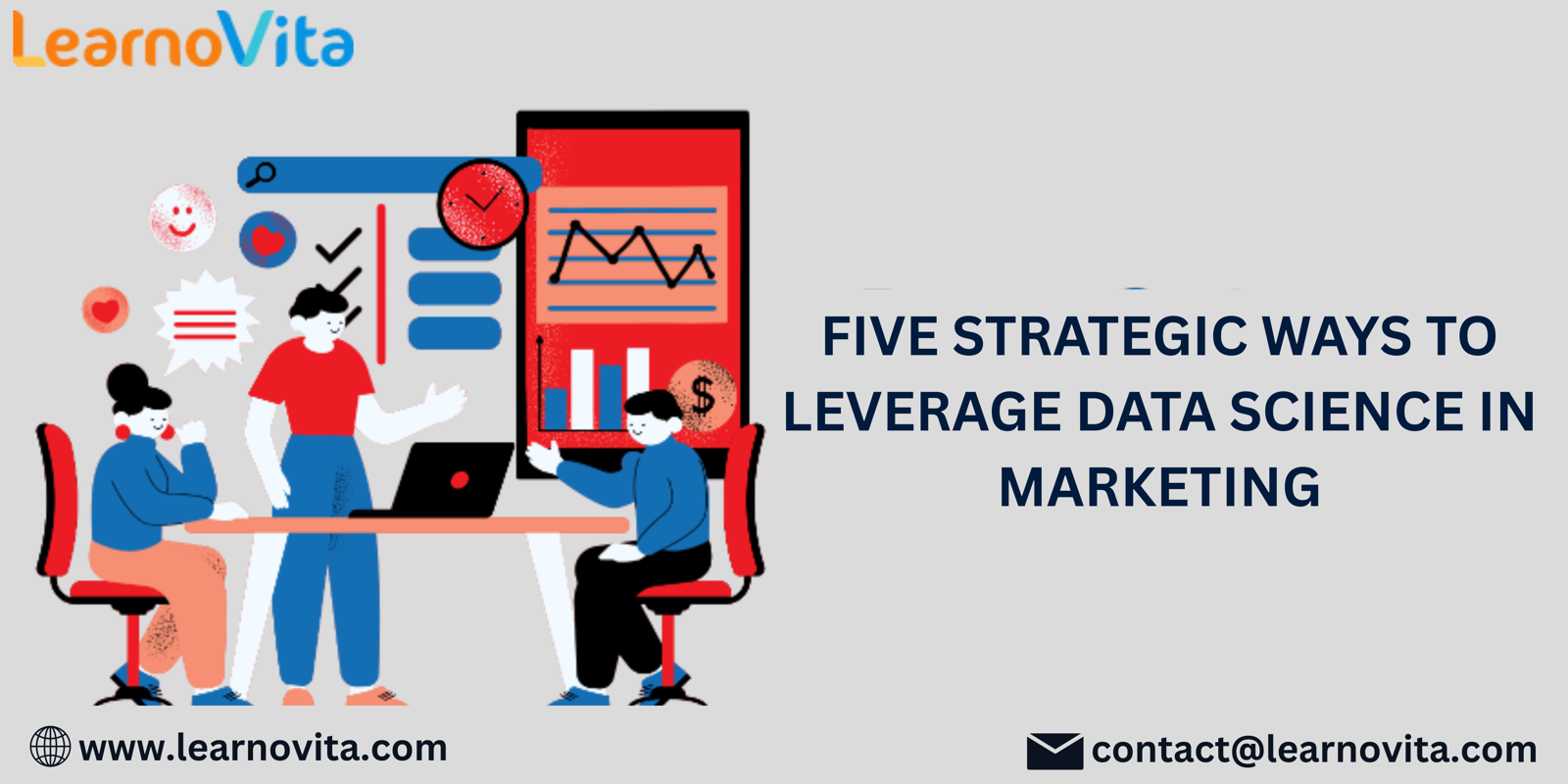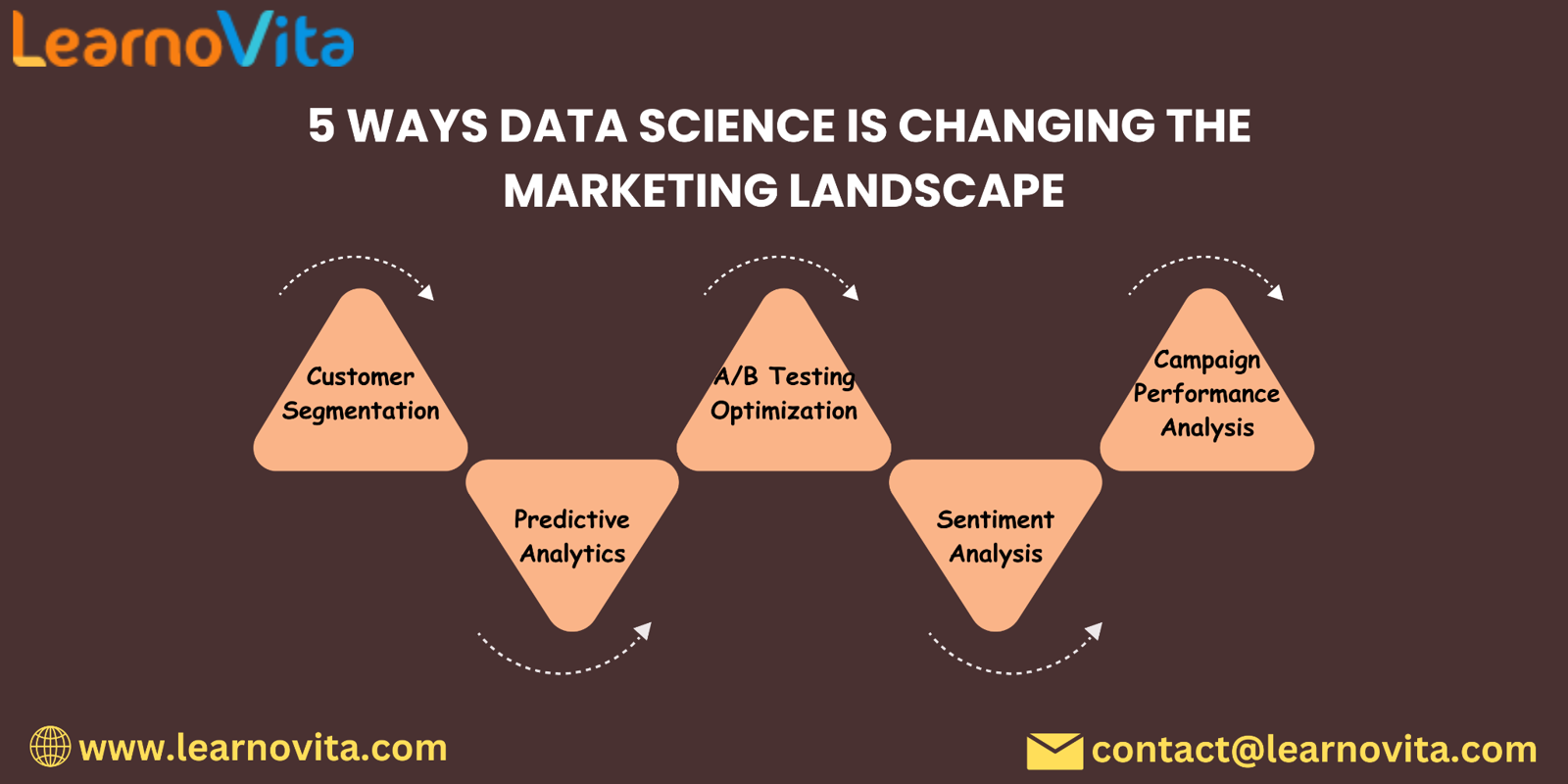In today's digital age, data science has transformed the marketing landscape. By harnessing data analytics and machine learning, businesses can make informed decisions that enhance customer engagement, optimize campaigns, and drive conversions. Here are five impactful ways to utilize data science in marketing.
If you want to excel in this career path, then it is recommended that you upgrade your skills and knowledge regularly with the latest Data Science Course in Bangalore.

1. Customer Segmentation
Data science allows marketers to segment their audience based on various criteria, such as demographics, behavior, and preferences. By applying clustering algorithms, businesses can identify distinct customer groups. This enables personalized marketing strategies that cater to the specific needs and interests of each segment, leading to higher engagement and conversion rates.
Example:
A retail company might use customer data to identify a segment of young adults who frequently purchase athletic wear. Targeted promotions for this group can significantly increase sales.
2. Predictive Analytics
Predictive analytics leverages historical data to forecast future trends and customer behavior. By using machine learning models, marketers can predict which customers are likely to make a purchase, churn, or respond to a specific campaign. This insight allows for timely interventions and tailored marketing strategies.
Example:
An e-commerce platform could analyze past purchase data to predict which items a customer is likely to buy next, enabling personalized product recommendations.
3. A/B Testing Optimization
Data science enhances A/B testing by allowing marketers to analyze the results more effectively. By employing statistical analysis, businesses can determine which version of a marketing asset (like an email or landing page) performs better. This helps in refining campaigns for maximum effectiveness.
Example:
A software company might test two different email subject lines. Data science can help analyze open rates and conversions, guiding the company to choose the more effective option.
With the aid of Data Science Certification Course programs, which offer comprehensive training and job placement support to anyone looking to develop their talents, it’s easier to learn this tool and advance your career.

4. Sentiment Analysis
Understanding customer sentiment is crucial for brand management. Data science techniques, such as natural language processing (NLP), can analyze social media posts, reviews, and feedback to gauge customer opinions. This insight helps businesses address concerns proactively and refine their messaging.
Example:
A restaurant chain could monitor social media mentions to identify trends in customer sentiment, enabling them to adjust their menu or service based on feedback.
5. Campaign Performance Analysis
Data science enables marketers to track and analyze the performance of marketing campaigns in real-time. By using dashboards and advanced analytics, businesses can assess which channels and strategies yield the best results. This data-driven approach allows for continuous improvement and resource allocation.
Example:
A travel agency might analyze various advertising channels (social media, email, PPC) to determine which brings the highest ROI, allowing them to invest more in the most effective strategies.
Conclusion
Incorporating data science into marketing strategies not only enhances decision-making but also fosters a deeper understanding of customer behavior. By leveraging these five approaches—customer segmentation, predictive analytics, A/B testing optimization, sentiment analysis, and campaign performance analysis—businesses can stay ahead of the competition and create more effective marketing campaigns. Embrace the power of data science to transform your marketing efforts!


Write a comment ...